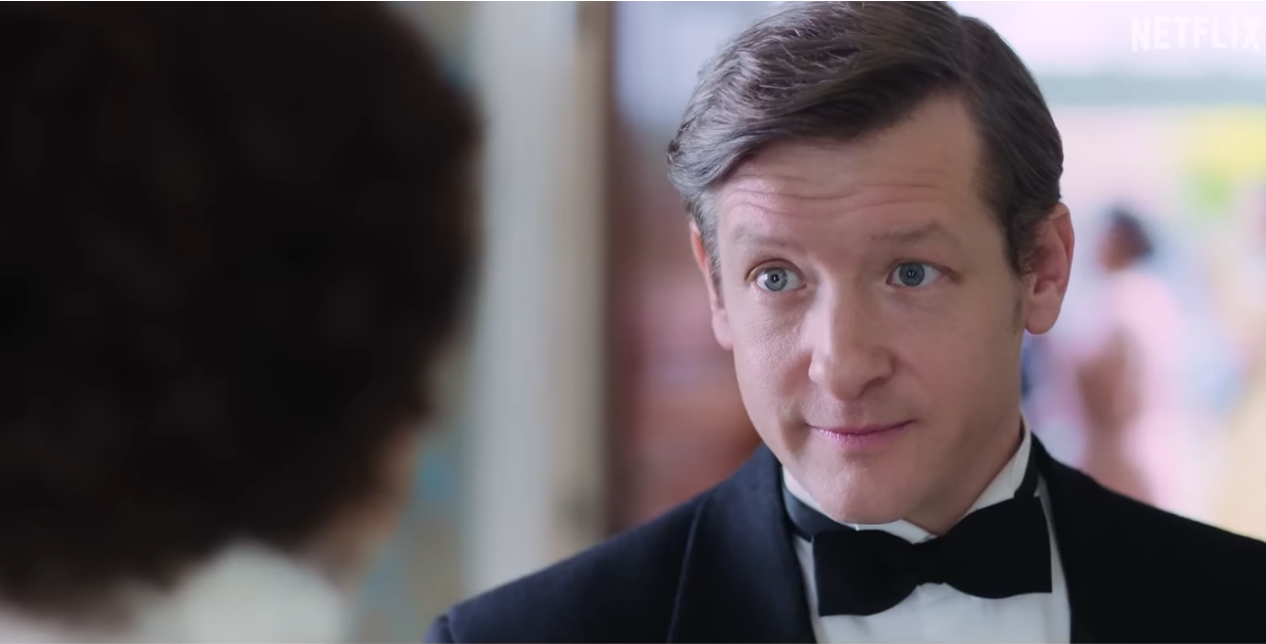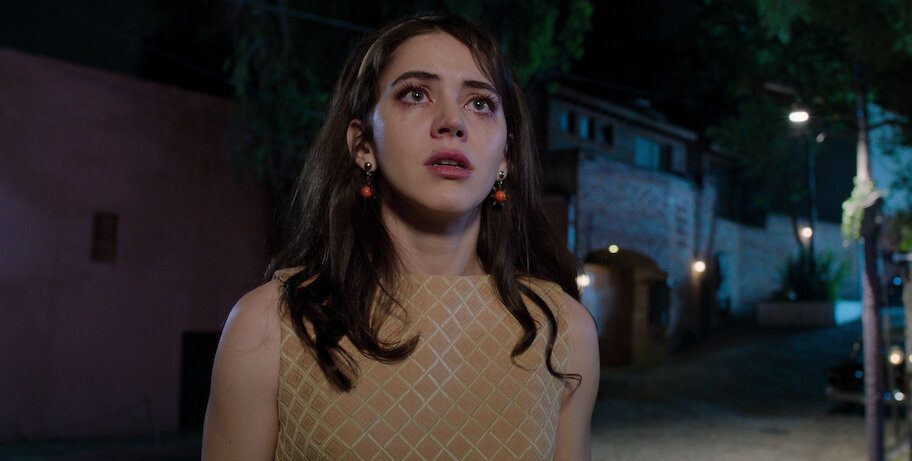Co-directed by Samuel Kishi, Lucía Puenzo, and Nicolás Puenzo, Netflix’s ‘No One Saw Us Leave,’ originally titled ‘Nadie Nos Vio Partir,’ tells the harrowing story of a mother who learns that her children have been kidnapped by none other than their father. This Mexican Drama series, based on a memoir of the same name by writer Tamara Trottner, brings to life questions surrounding family structure, desire, and autonomy, with the fate of two children hanging in the balance. Desperate for a way ahead, Valeria joins hands with an ex-Mossad agent, and thus begins an elaborate cat-and-mouse chase spanning several countries. All the while, Valeria’s romantic relationship with Carlos serves as both her anchor and the starting point for the narrative, as well as Leo’s cruel undertakings. As such, the possibility of the love story continuing beyond the scope of the narrative becomes intimately connected to its premise and subject matter. SPOILERS AHEAD.
The Ending Confirms that Valeria and Carlos Lead a Long Life Together
While the ending of ‘No One Saw Us Leave’ primarily focuses on Valeria’s reunion with her children, Isaac and Tamara, there lies an underlying thread in the sequences concerning her relationship with Carlos. Having firmly severed all of her ties with her husband, Leo, she now openly embraces her relationship with Carlos, and that equation hardly changes with the reinclusion of her two kids into her life. While we are not given a direct glimpse into their shared future, information displayed on a black screen confirms that Valeria and Carlos end up and stay together following this event. Going one step further, the information card confirms that the couple stayed together for the rest of their lives, up until Carlos’ death in 1997. As such, the narrative indicates that their love triumphs past the series of limitations imposed upon them, not just by their immediate family, but also by the world at large.

Although it is crystal clear that Valeria and Carlos are deeply in love with each other, the real-life implications of them being together only begin to click after both separate from their respective partners. A crucial distinction in the two processes is in how they exit, as while Carlos voluntarily leaves Gabriela and the house, for Valeria, that course of action is thrust upon her. Kicked out of her own house by Samuel Saltzman, Valeria begins living with Carlos, starting a new chapter in their romantic journey. From here, the minor folds and wrinkles in their dynamic become apparent, but unlike in the case of Valeria and Leo, here the couple strives to resolve them immediately. A second distinction is made in their undying passion for each other, along with which comes the emotional and psychological support that is needed in the face of such crises. As such, their love proves to be more than an exercise in ardor, but also in genuine companionship.
For Carlos and Valeria, the challenges that lie ahead are not just romantic in nature but also familial. The most pertinent question that arises in the follow-up to the ending is whether the children accept Carlos as their new guardian, if not their father figure. Given that Isaac and Carlos are steadily fed a narrative about their mother and uncle during the time they spent with Leo, it is natural for their mindset regarding this relationship to be colored with bias. However, the little interactions that we see between mother and children, particularly in relation to Isaac, show that the siblings are somewhat understanding of the complicated situation that they are in and might gradually open up to Carlos. This, in turn, creates moments of genuine empathy that contribute to the dynamics’ depth and believability. As such, it is likely that the children not only come to understand their mother’s perspective, but also the feelings she has for Carlos.
Valeria and Carlos’s Love Story Breaks Several Social Conventions
Given that the story is about the kidnapping of Valeria’s children by Leo, the story arc concerning Carlos and his marriage to Gabriela is narratively less prominent, but nonetheless has undeniable parallels and resemblances. This connection is made explicit in the fact that both Leo and his sister realize that each of their marriage is a mess, which makes the buildup to an affair all the more ironic. Leo’s early suspicions of his wife having an affair come to life when he reads the love letters that his wife has received from Carlos, which split the entire family structure wide open. Although we never know the circumstances on Gabriela’s end to a similar extent, it can be inferred that both Carlos and Valeria bond over being similarly dissatisfied in their marriage. That, however, is not the only constituent in their love story, as the connection that follows is also built on shared emotional capacity, desires, and a sense of trust, all of which are missing in Valeria’s relationship with Leo.

The advancement of Valeria and Carlos’s relationship is also bound to come as a social shock, considering that it has been the subject of negativity since the moment it became public. However, the couple’s ability to power through the noise and strengthen their own bonds adds one more feather to their cap, showing how resilience is one of the core pillars that gets their story going. Notably, Valeria is, at one point, forced into choosing between her children and her connection to Carlos, and while that choice never comes to fruition, the subsequent moral morass makes its appearance in other forms. Most notably, she demands his absence during the court sessions, believing that it can hamper their case for custody. As such, while Valeria’s love for Carlos is potent in and of itself, it still has to stand the test of society on numerous occasions, and it is unlikely that the circumstances get any less trying following the show’s ending, which doubles as a new beginning for their love story.
Read More: Is The Widow’s Payback Based on a True Story? Is Amanda Bibbs a Real Person?


